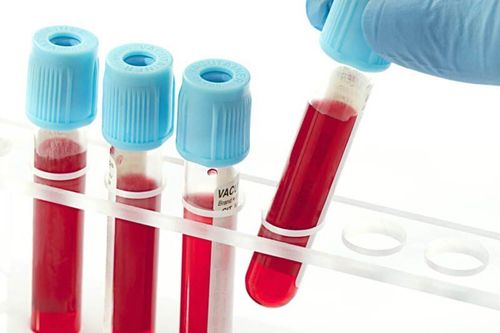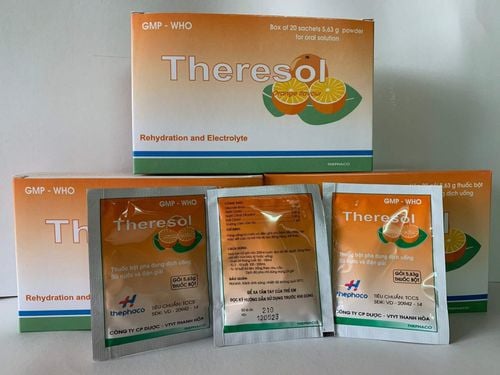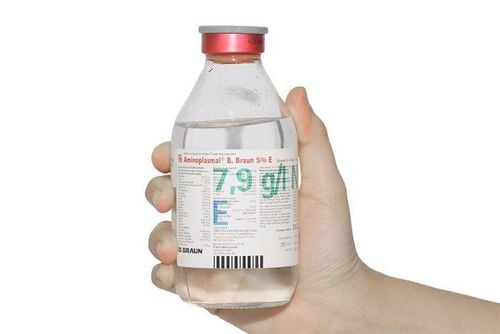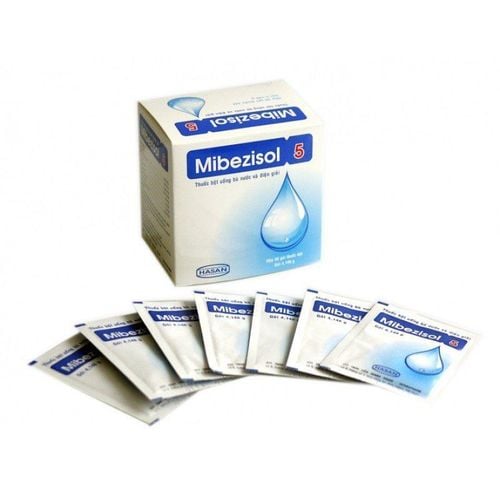This is an automatically translated article.
Hypochloremia is an electrolyte imbalance in the body, which occurs when the body has low blood chlorine levels. This condition can cause symptoms like fatigue, dehydration, etc. and has many different causes.
1. What is hypochloremia?
Electrolytes include chemicals that regulate important physiological functions in the body, such as sodium, potassium, calcium, magnesium, bicarbonate,...
When dissolved in water, electrolytes dissociates into positively and negatively charged ions. In it, chloride is a negatively charged ion, often combined with other electrolytes such as sodium and potassium to regulate fluid levels as well as balance pH in the body. Chloride is most commonly consumed as table salt sodium chloride.
Hypochloremia is a condition in which the body's blood chlorine level drops below normal, leading to an electrolyte imbalance. This is usually detected through blood chlorine tests.
According to doctors, a blood chlorine level in the range of 98–106 mEq/L is considered normal for an adult. In children, normal chlorine levels can be lower, averaging 90 – 110 mEq/L. If the blood chlorine test results below these values, the patient is defined as hypochloremic.
In addition, hypochloremia can also be diagnosed based on the patient's medical history or medications that cause electrolyte imbalances. However, blood test is the most accurate diagnostic solution.
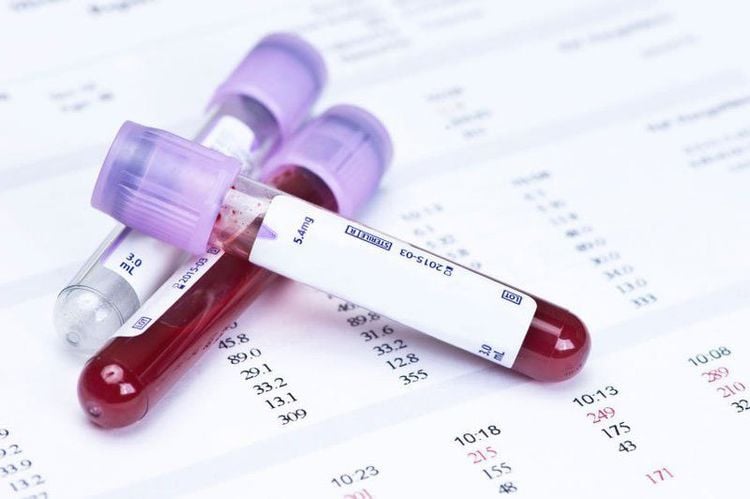
Xét nghiệm máu là giải pháp chẩn đoán tình trạng thiếu clo máu chính xác nhất
2. Summary of some common symptoms of hypochloremia
Low blood chlorine often causes no specific symptoms. However, some symptoms of an electrolyte imbalance can occur, including:
Dehydration and its accompanying symptoms. Weakness, lethargy, muscle pain. Shortness of breath and often shortness of breath. Frequent diarrhea/vomiting due to dehydration. Lower blood pressure. Increase heart rate. Hypochloremia can also be accompanied by hyponatremia (low blood sodium levels).
3. What causes hypochloremia?
Blood chlorine and other electrolytes are usually regulated by the kidneys, so most electrolyte imbalances in the body are most closely related to kidney function. Of course, hypochloremia is no exception. Kidney diseases that can cause salt (sodium and chloride) loss include: chronic kidney failure and obstructive urinary tract disease.
Besides, hypochloremia is also associated with excessive use of laxatives, diuretics, aspiration of decongestants, prolonged vomiting or diarrhea due to abnormal functioning of the small intestine, loss of fluid. due to trauma such as burns...
If hypochloremia is caused by medical conditions, some of the following causes
Besides kidney problems, low blood chlorine levels can also come from any Which of the following causes:
Congestive heart failure. Chronic lung disease, eg emphysema. Metabolic alkalosis (occurs if blood pH is higher than normal), which may be associated with chronic respiratory acidosis and cystic fibrosis. Cushing's syndrome. Malabsorption syndrome.

Tình trạng thiếu clo máu có thể liên quan đến việc sử dụng quá nhiều thuốc nhuận tràng, lợi tiểu,...
4. How to treat hypochloremia?
For electrolyte imbalance in general and hypochloremia in particular, the treatment should be done based on the health condition, the cause, and the drugs that the patient is using, from there. appropriate adjustment.
If your hypochloremia is caused by medications you are taking, your doctor will ask you to stop taking them or adjust the dosage if necessary.
For low blood chlorine problem due to kidney related problems or endocrine disorders, patients will be referred to specialists for the most reasonable and effective remedy.
Sometimes, if the blood chlorine drops slightly, you can overcome it by adjusting your diet as well as daily activities, including some of the following notes:
Increase the amount of salt sodium chloride pepper consumed daily. Ensure good control of the body's medical conditions, especially heart disease, kidney disease, liver disease and diabetes. Provide enough water for the body every day. Try to limit caffeine and alcohol. These drinks can increase the body's ability to lose water. In general, hypochloremia occurs when chloride levels are low in the body. The causes of this condition are quite diverse, it can be due to vomiting, medical conditions or certain medications. In palliative cases, doctors can add chloride to the patient. However, for a severe drop in chlorine levels, some stronger remedial measures would be taken.
Vinmec International General Hospital is one of the hospitals that not only ensures professional quality with a team of leading medical doctors, modern equipment and technology, but also stands out for its examination and consultation services. comprehensive and professional medical consultation and treatment; civilized, polite, safe and sterile medical examination and treatment space. Customers when choosing to perform tests here can be completely assured of the accuracy of test results.
Customers can directly go to Vinmec Health system nationwide to visit or contact the hotline here for support.
Please dial HOTLINE for more information or register for an appointment HERE. Download MyVinmec app to make appointments faster and to manage your bookings easily.
Reference source: healthline.com; chemocare.com; medindia.net




